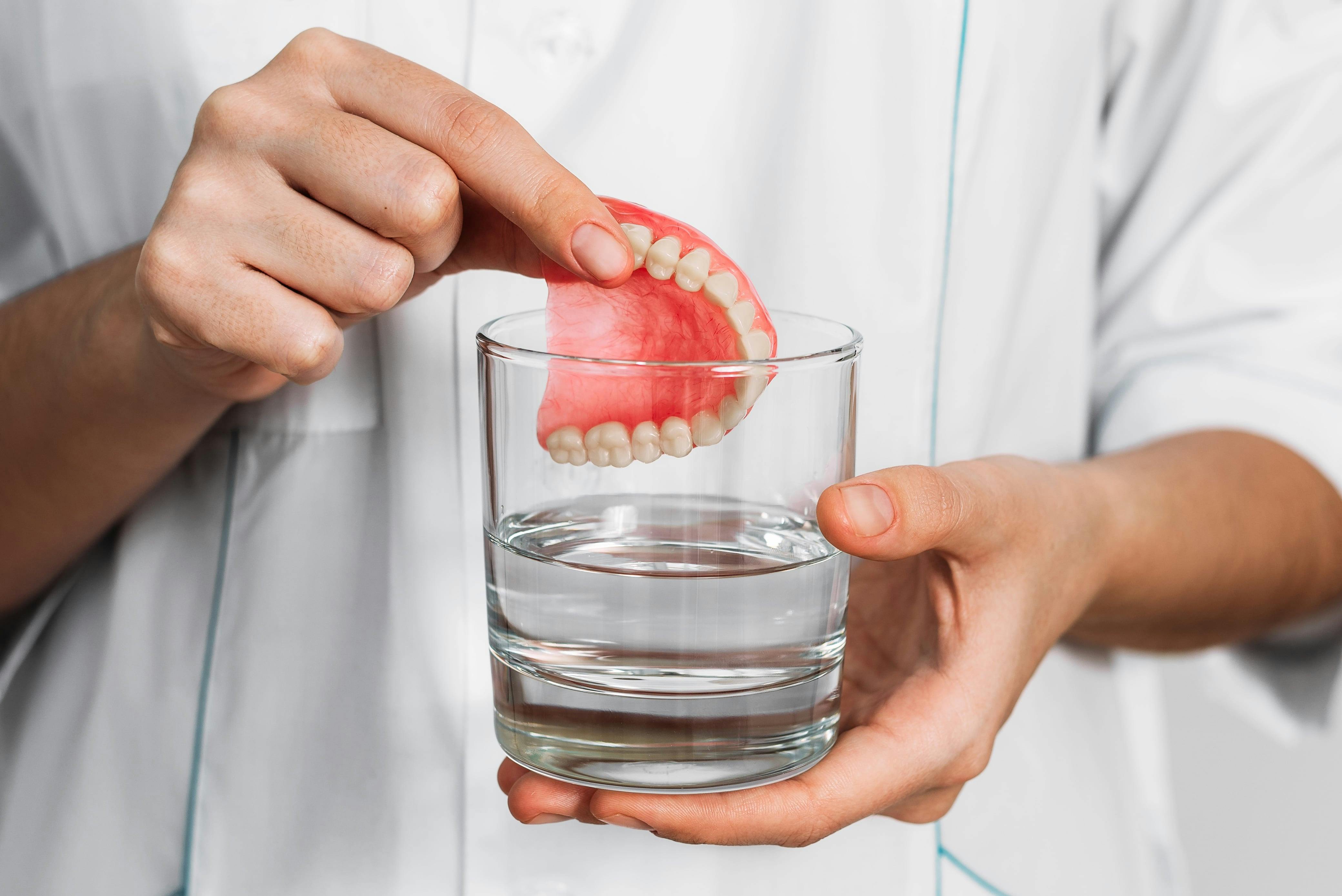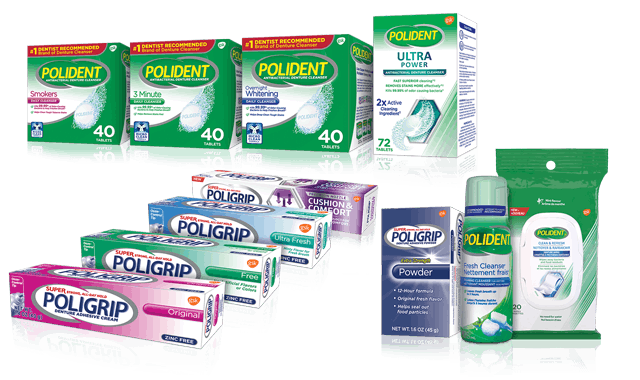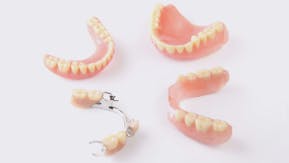Can You Sleep with Dentures?
Once you’ve finally received your new dentures, you’ll likely be excited to flash your new smile. For the first few days, it’s okay to sleep in your dentures—your dental team may even recommend it.1,2 Once your mouth has adjusted to your dentures, you should remove them each night before sleeping.1 To best maintain your dentures and keep your gums healthy, dentures should be taken out and kept in a cleaning solution while you sleep, unless otherwise advised by a dental professional.1,2,3
How Sleeping with Dentures Affects Oral Health
Dentures help restore your smile when you’ve lost your natural teeth as a result of gum disease, tooth decay, or injury.4 Not only do they improve your appearance, but they also make it easier to speak and eat and help fill out the appearance of your face.4 On their own, dentures don’t create oral health problems. However, not taking care of your oral health while wearing dentures may cause issues.1 Leaving your dentures in while you sleep can lead to bacteria buildup, which can possibly lead to gum disease in the long term.1,3
Sleeping in dentures also increases your risk of denture stomatitis, an infection caused by a yeast or fungus called candida.5 Denture stomatitis causes sore, red, and inflamed gums that may require treatment.5 If left untreated, it can lead to poorly fitting dentures in the future.5 Some studies have even shown that elderly people who sleep in their dentures may be more at risk for developing pneumonia.6 By removing and cleaning your dentures every night, you’ll be able to prevent health problems before they occur.
How Long Should You Wear Dentures?
You may need to wear your dentures most of the time for the first few days, including during sleep.1 Once your mouth adjusts to your dentures, you should avoid wearing them overnight.1 By removing them at night, your gums can rest, and you can avoid related oral health problems.1
During the day, you should be able to wear your dentures normally, unless otherwise directed by your dentist.1
Why You Should Keep Your Dentures Clean
Keeping your dentures as clean as possible helps prevent inflamed gums, infections, and further tooth loss.7 By cleaning your gums and dentures each day, you’ll remove harmful bacteria and keep your mouth healthier. Treat your dentures like you would treat your natural teeth—clean them at least once a day and after eating if you need to.7 Generally, you should brush and soak your dentures every day. Use a non-abrasive denture cleaner to brush your dentures, not toothpaste, and soak them in a denture-cleaning solution overnight.7 Do not use bleaching products to clean your dentures, as this can weaken them and cause them to break.7
How to Care for Your Dentures at Night
Whether you have full or partial dentures, it’s important to maintain your oral health. Use a soft toothbrush every morning and night to brush your gums, tongue, and roof of your mouth. By brushing your mouth, you’ll remove plaque and stimulate blood circulations. If you wear partial dentures, you’ll need to also brush your teeth thoroughly to help prevent further tooth loss. A good oral hygiene routine helps prevent tooth decay and gum disease.
Before going to bed, remove your dentures and follow denture care best practices.2,3
- Clean your dentures over a bowl of water or towel in case you drop them. Dentures are fragile and may break if you drop them on a hard surface.
- Gently brush your dentures using a non-abrasive denture paste cleanser, not toothpaste, to remove food bits and plaque. If you use dental adhesive with your dentures, this should be removed with gentle scrubbing every day.
- Soak your dentures overnight night in a denture-cleaning solution. Cleaning solutions help remove stains and plaque left on your dentures. It also disinfects your dentures and makes them feel fresher in the morning.
Never place your dentures in hot or boiling water, as this can cause them to warp.3 Placing them in denture cleanser solution whenever you’re not wearing them helps retain their shape and remain pliable.3 Avoid keeping your dentures in while you sleep unless your dentist advises you otherwise. If your dentures become heavily stained, ask your dentist to clean them professionally.
If you treat your dentures well, they should last for years.1 When caring for your dentures, use products specifically made to clean and disinfect dental appliances.3 To learn more about maintaining your dentures, explore the Polident website.
Source Citations:
- Dentures. https://www.dentalhealth.org/dentures. Accessed 6/17/22.
- Removable partial dentures. https://www.mouthhealthy.org/en/az-topics/d/dentures-partial. Accessed 6/17/22.
- Denture Care and Maintenance. https://www.ada.org/resources/research/science-and-research-institute/oral-health-topics/dentures. Accessed 6/17/22.
- Dentures. https://www.mouthhealthy.org/en/az-topics/d/dentures. Accessed 6/17/22.
- Denture stomatitis. https://www.dentalhealth.org/denture-stomatitis. Accessed 6/17/22.
- Denture Wear During Sleep, Pneumonia May Be Linked, Researchers Report. https://jada.ada.org/article/S0002-8177(14)60288-9/fulltext. Accessed 6/17/22.
- Denture Cleaning. https://www.dentalhealth.org/denture-cleaning. Accessed 6/17/22.






